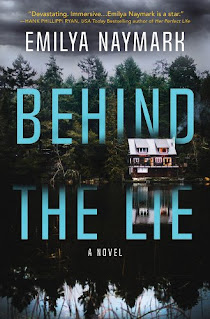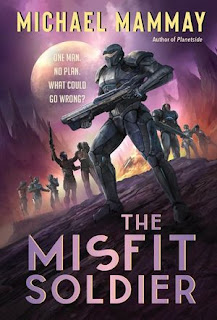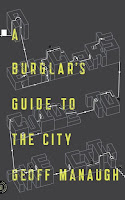 which promptly became a love and a muse.
which promptly became a love and a muse.
She studied art and was lucky enough to illustrate numerous publications before transitioning to the digital world.
She has a particular fascination with psychological thrillers, crime, and suspense. All the dark stuff. So that’s what she writes.
Naymark's new novel is Behind the Lie.
Recently I asked the author about what she was reading. Her reply:
Frankly, I’m beginning to think my reading has reached pathological quantities. At any given moment I have either a hardcover book, something on my Kindle, or an audiobook going.Visit Emilya Naymark's website.The other night I cleaned the house top to bottom because I wanted to listen to an audiobook, and I needed something else to do while listening.
In no particular order, these are the books that have had an extreme effect on me in the past year or so.
The Beastie Boys Book – I listened to this one as an audiobook, and it was like nothing else I’ve ever experienced. It’s written partly by the surviving Beasties, but also by such luminaries as Colson Whitehead, and is read by actors, musicians, friends, DJs, chefs, and more. Listening to it made me miss the New York of myyouth, made me remember places, clubs, and people I haven’t thought of in years. It’s funny as hell, quirky, and kaleidoscopic in breadth. My favorite chapter is The Oral History of Cookie Puss, written by Colson Whitehead and read by probably thirty different personalities.
The Plot by Jean Hanff Korelitz – This novel was so well written, I got sucked in and didn’t emerge until two days later. My friend was reading it at the same time as I was, and nearly set her house on fire because she became so caught up in the story that she forgot she’d put something on the stove until she smelled smoke. The genius in this book is that Korelitz created anextremely relatable character who faces an extremely relatable problem. The prose is sharp and very witty. I can’t say enough good things about it.
Fleishman Is in Trouble by Taffy Brodesser-Akner – This was another book that consumed me and wouldn’t let go until I finished. On the surface it’s a story about a man whose marriage comes apart, but it’s also crazy funny, while being a searing observation of modern life and the need to connect in an increasingly digitized and unhumanized society.
Normal People by Sally Rooney – I listened to this one while tooling around on my bicycle at the Jersey Shore. I immediately fell in love with the audionarrator’s voice and then became so involved with the story of the two star-crossed lovers that I ended up getting a lot of exercise on that bike. The book is well written, but its draw for me was how real the characters seemed and how stupid. They made the worst decisions. Like, ever. I loved that.
The Page 69 Test: Hide in Place.
My Book, The Movie: Hide in Place.
Q&A with Emilya Naymark.
--Marshal Zeringue














